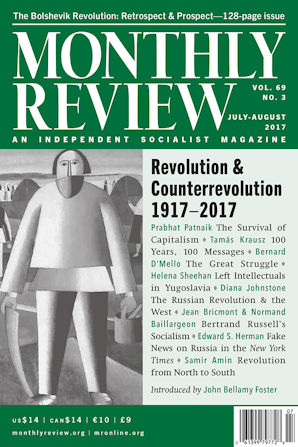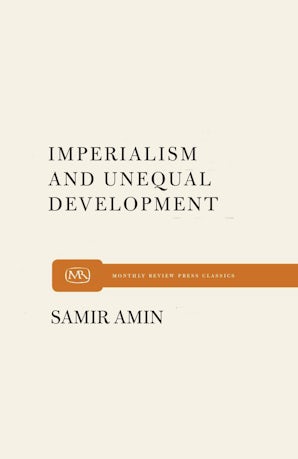Also in this issue
Books by Samir Amin
Imperialism and Unequal Development
by Samir Amin
Eurocentrism
by Samir Amin
Only People Make Their Own History
by Samir Amin
The Liberal Virus
by Samir Amin
Article by Samir Amin
- The New Imperialist Structure
- Toward the Formation of a Transnational Alliance of Working and Oppressed Peoples
- The Communist Manifesto, 170 Years Later
- Revolution or Decadence? Thoughts on the Transition between Modes of Production on the Occasion of the Marx Bicentennial
- The Kurdish Question Then and Now
- Reading 'Capital', Reading Historical Capitalisms
- Contemporary Imperialism
- Saving the Unity of Great Britain, Breaking the Unity of Greater Russia
- Latin America Confronts the Challenge of Globalization: A Burdensome Inheritance






